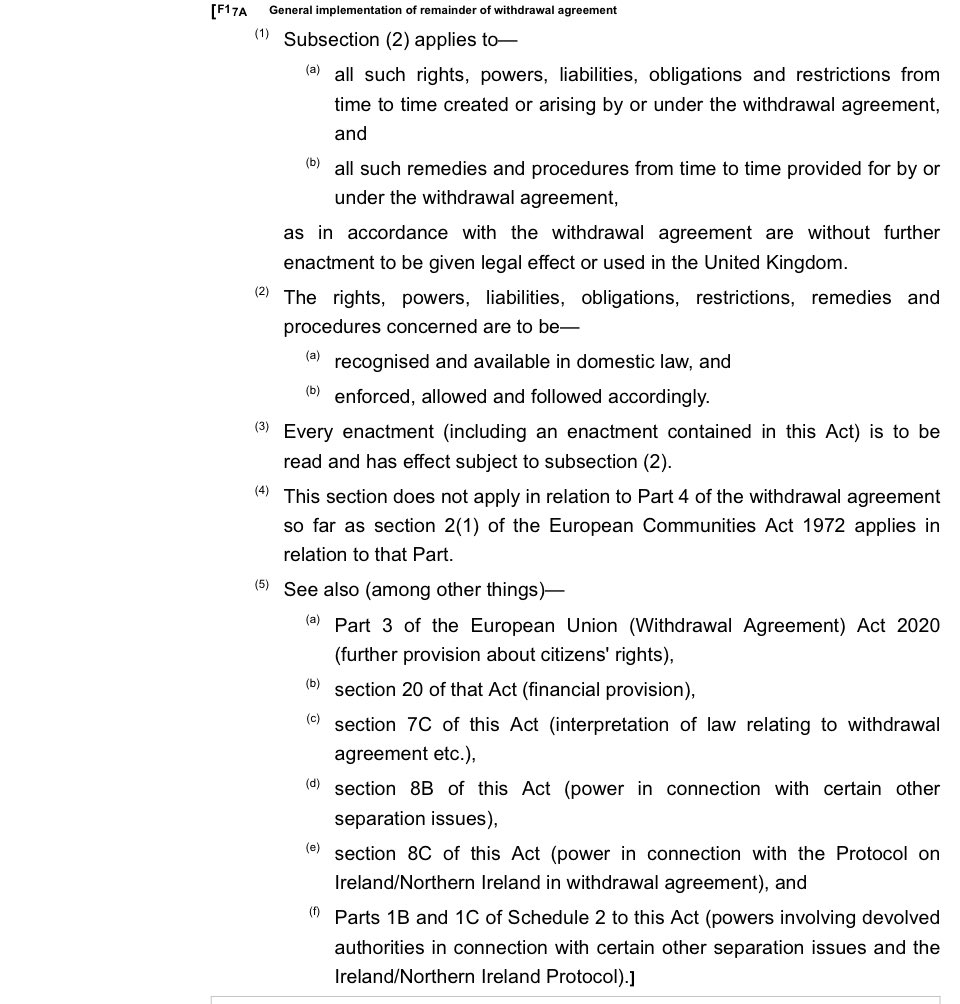
One under-discussed aspect of threats by the U.K. government to breach/ignore the I/NI Protocol: it needs to be remembered that non-compliance with the Protocol is also non-compliance with *domestic* U.K. law which the U.K. government has no *domestic* power to over-ride.
Subject to issues of standing (which are these days rarely decisive) the U.K. courts could be asked to make orders (declarations/injunctions) to restrain any government attempt to waive or legislate to remove Protocol obligations.
And in some cases third parties could seek damages for breach.
Nor can the U.K. government do much in the short run about that risk: it would have to get primary legislation through Parlt that expressly cut back section 7A. Which - as last year showed - would face overwhelming opposition in the House of Lords (which has powers of delay).
(Not to mention that such legislation would also be a flagrant breach of the WA - so exposing the U.K. to sanctions/remedies under the WA and TCA as well as damage to the UK’s deep interest in a rules-based world trading order.)
That possibility of *domestic* legal action needs to be added to the list of possible EU responses set out here to what could be called “salami-slicing” (sorry) U.K. govt tactics in response to the “sausage issue”.
https://twitter.com/tconnellyrte/status/1403289735255183363
(See here by @HCH_Hill for an explanation of the salami-slicing tactic: conservativehome.com/thetorydiary/2…) 

• • •
Missing some Tweet in this thread? You can try to
force a refresh










